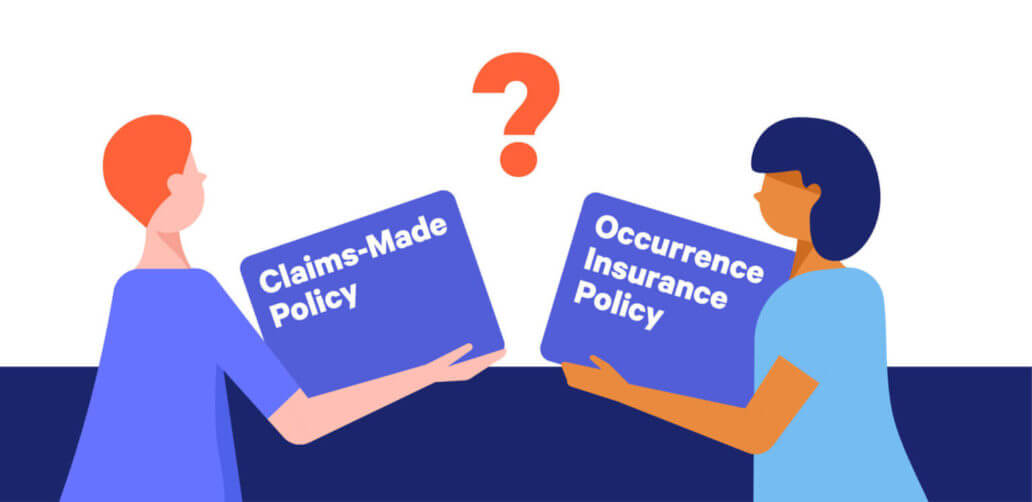For individuals who wish to set up a private practice in Volusia, it is essential to ensure that you first have adequate liability insurance in Volusia.
Very few small businesses, especially those that are just getting started, have the finances to defend against a malpractice claim.
Legal costs, damages, or settlements can cost you thousands of dollars in damages. This is why it is vital to have professional malpractice insurance Central Florida.
But, what type of insurance in Volusia should you purchase? Occurrence or claims-made?
Keep on reading to find out!
Occurrence Coverage
An occurrence-based policy gives you coverage for alleged incidents and losses that occurred while your policy was active.
As long as the incident occurred during the time your insurance was active, you can file a claim with your insurer. This type of policy accommodates “long-tail” events — scenarios that don’t produce claims or lawsuits immediately.
Claims-made Coverage
A claims-made policy gives the insurer coverage only if you file a claim within the active policy period. You need to have active insurance when you choose to file a claim. If you cancelled your insurance policy — or had your insurance cancelled — you won’t be insured.
When you purchase a claims-made policy, the original starting date (retroactive) becomes a fixed part of the claims-made policy. The retroactive date remains the same every year the policy is renewed.
Renewed claims-made policies provide coverage for claims filed during the policy year for situations that occurred at or after the retroactive date. This is how previous years are covered under the current policy.
As long as you keep renewing a claims-made policy each year, you will be continually covered for incidents that occur between the retroactive and the policy expiration dates.
Any incident that happened before the retroactive date will not be covered. Therefore, it is essential to keep renewing the claims-made policy each year to maintain continuous coverage.
Some insurance companies provide the option to buy an extended-reporting period (ERP) for a few claims-made policies. An ERP lets you file claims even though you have no active insurance.
However, it only applies to incidents that occurred during the previous policy period and for which you now wish to file a claim. If a new loss happens after you cancel your insurance, you’ll be uninsured.
Occurrence Vs Claims-made: Which Is Better For You?
Is one type of policy better than the other? Well, the exact answer to this question depends on your specific needs and wants.
Occurrence-based policies are much simpler and more convenient to own. When you switch insurance companies, you will still have the ability to file claims on previous incidents, unlike claims-made policies. But they are generally more expensive compared to claims-made policies.
Claims-made policies, on the other hand, are more cost-effective and have much lower initial premiums. But problems can arise when you switch insurance plans or cancel your claims-made policy.
At the end of the day, it all depends on your circumstances. Claims-made policies can be ideal if you’re starting a new practice, don’t want to spend too much on insurance, and don’t plan on cancelling your policy in the future.
But, if you want the advantage of permanency and finances isn’t an issue, then an occurrence-based policy might be more up your alley!

